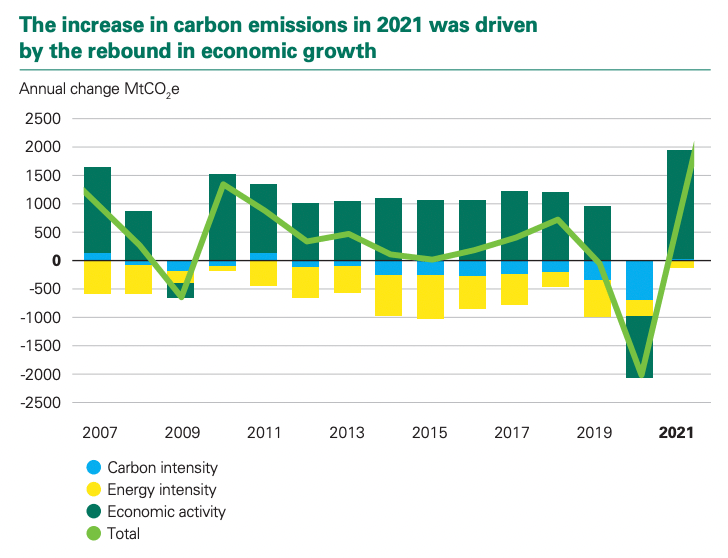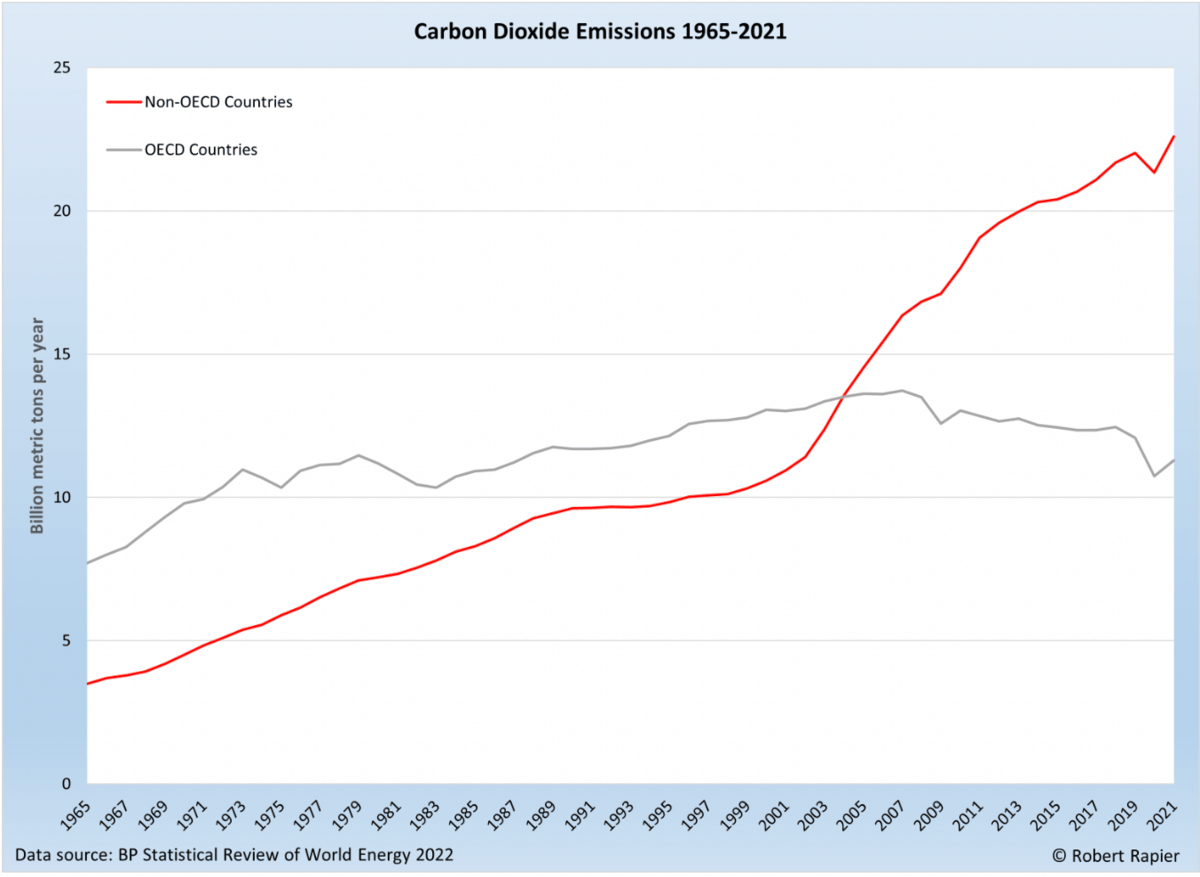France's Survival Strategy
Agnes Pannier-Runacher, France's minister of the energy transition, has outlined France's plan to survive the energy crisis: call on the public to reduce energy consumption.
Here's what they're doing: banning illuminated advertising at night (except for train stations and airports) and "preventing stores from keeping doors open when air conditioning or heating is on." Pannier-Runacher expects this could help French businesses cut their consumption by 20%, according to Bloomberg.
“In the medium term, we must support the French in their energy transition, but in the short term we must adapt to the reality,” she said.
"The minister on Sunday reiterated a target to cut energy use 40% by 2050 and by 10% before 2024, thanks to economizing, energy efficiency, renewables and nuclear energy," Bloomberg reports.
France's neglected nuclear plants have encountered corrosion issues that have significantly dampened their performance at the worst possible time.
The French government has also made a $9 billion bid to nationalize the EDF electric company in response to the energy crisis.
The EU wants to reduce gas consumption by 15% among member-states. IEA Chief Faith Birol says that's not enough--20% is more realistic. Yet southern European countries, sore from their experience of enforced financial austerity at the behest of Berlin, now wonder why they should bail out their northern neighbors' energy policy follies.
As winter nears and supplies depleted, more countries will find ways to encourage (or enforce) energy rationing to get by. It's not yet August.
Carbon Emissions to Hit All-Time High
Despite the West's best efforts, carbon emissions are going up.
"A year ago, as a result of the Covid-19 pandemic, BP reported a 6% decline in global carbon dioxide from 2019 to 2021," writes Robert Panier. "This was the largest such decline since World War II."
But the bounce-back from Covid brought higher emissions with it. From 2020 to 2021, emissions rose almost 6%, the fastest growth rate in about half a century. The trend looks likely to continue unless a recession levels demand for energy.

The culprit for the emissions boom comes from non-OECD countries. "Carbon dioxide emissions in these countries have been in decline for 15 years, and are at approximately the same level they were at 35 years ago," writes Panier. Outside the OECD, emissions have boomed.

He points to two reasons why: 1) coal, which is cheap, abundant, and easy to build--an ideal tool for kilowatt-hungry countries on a budget, which ties into reason (2); developing countries want to develop.
Panier says that we need to find the right tech to dig us out of this rut. I don't think there's anything to be found--we already have nuclear. We can either do everything we can to liberate the atom, or we can watch emissions rise. The Iron Law of Electricity obtains: people will do whatever they can to get the juice.
States Advise FERC
State utility regulators are telling the Federal Energy Regulatory Commission how it oughta be.
The major challenge with the grid these days is transmission. The energy transition has incentivized wind and solar, which are built far away from where electricity is needed. Thus they need miles and miles of transmission lines to carry what they produce.
But transmission lines involve land, which means they involved property, which, as thinkers as old as Aristotle have pointed out, means trouble. Who should pay for them? Where should they go? Why didn't we sort this out before we built all this stuff anyway? These are the questions that plague mainstream American electricity policy instead of reliability or affordability concerns.
Well, that's not entirely true. State utility regulators want more transmission because they want cheaper kilowatts. As E&E reports, "Utility regulators called on the Federal Energy Regulatory Commission to address the current dearth of interregional transmission, or power flow between different states and sections of the electric grid, which they said could make electricity more reliable and unlock low-cost solar and wind energy."
The comments from utility regulators came during a week of meetings with a first-of-its-kind state-federal task force that FERC created this year to tackle this issue.
Jason Stanek, chair of the Maryland Public Service Commission and co-chair of the task force, said, “Many of us are frustrated. It should not be this difficult to string new lines from state to state and within regions.”
Hardly any transmission has been built in the last decade. To remedy that, some task force members suggest that FERC require grid operators have the capacity to "transfer a minimum amount of energy to other grid regions." Usually called a 'minimum interregional transfer capability,' they argued this could result in more interstate transmission lines being built. Others on the task force doubted such a scheme would benefit their state.
Commissioner Danly, ever the skeptic, remained doubtful FERC even has the authority to do such a thing.
“I have yet to hear anything that makes me think we’ll be able to make that showing,” he said.
At the end of the article, E&E quotes Jeff Dennis, a former FERC lawyer, and renewables partisan. Dennis believes FERC shows solid support for major action on the transmission front.
So much of what happens in and around FERC seems tailored to fit the desires of green NGOs, financiers looking for tax breaks, guys like Dennis and the crops of energy experts who intern for them and then go on to publish white papers in favor of Rube-Golberging our grid with wind and solar, and foreign multinationals that love to sue small American townships for resisting their land-hungry wind and solar farms. This all gets laundered in bureaucratic-ese and sold to the public as just and responsible when weighed against the planet cooking to death.
You love to see it.
Like what you're reading? Click the button below to get Grid Brief right in your inbox.
Conversation Starters
Germany maybe might consider keeping its nuclear plants running. I'm not holding my breath, but I hope they reconsider their closures.
Justin Trudeau wants to reduce Canada's fertilizer consumption in its war on carbon emissions. As Nathan Carson points out, this will provoke an even deeper food crisis if it successfully passes through parliament.
2022 might be a year of record coal consumption if its current trend continues. "The world’s coal-fired generators produced a record 10,244 terawatt-hours (TWh) in 2021 surpassing the previous record of 10,098 TWh set in 2018," reports Oilprice.com.
Crom's Blessing
